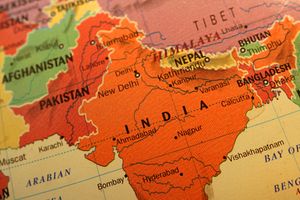Pakistan has sent a five-person Special Investigation Team (SIT) to India to investigate the circumstances of the January attack on the Indian Air Force’s base at Pathankot, which New Delhi alleges was conducted by Pakistan-based militants. The investigators arrived in New Delhi on Sunday and will travel to Pathankot to evaluate evidence, interview witnesses, and survey the scene of the attack. India suspects militants belonging to Jaish-e-Mohammed (JeM), a Pakistan-based anti-India terror group, as responsible for the attack. The United Jihad Council (UJC), a coalition of militant groups against Indian rule in Kashmir, claimed responsibility for the attack as well.
In the aftermath of the January 2 attack on the air base, which resulted in 14 deaths, including all six of the attackers, India claimed that phone intercepts substantiated New Delhi’s suspicion that the attackers had crossed over from Pakistan. The attacks had come at a time of unusual diplomatic rapprochement between India and Pakistan–a trend that had culminated with a surprise stopover by the Indian prime minister in Lahore on his way back from Afghanistan on December 25, 2015. The attacks caused India and Pakistan to postpone scheduled national security adviser talks.
Pakistan has largely sought to cooperate with India in the investigation so far. In January, shortly after the attack, Pakistani authorities moved to raid Jaish-e-Mohammed facilities and took the group’s leader, Masood Azhar, into “protective custody.” Azhar’s circumstances remain somewhat ambiguous. India’s National Investigation Agency (NIA) is requesting that Pakistan provided voice samples from Azhar to aid in its investigation.
The Indian government’s decision to allow the SIT to enter a sensitive Indian Air Base has caused controversy, with critics alleging that the SIT’s investigation could compromise the security of Indian bases. According to Indian Defense Minister Manohar Parrikar, the SIT’s movement and access within the base has been restricted. “We have specially denied them permission to go anywhere in the air base. They are only allowed access to the place where crime took place. The area is cordoned off,” Parrikar said, according to ANI News.
Sartaj Aziz, adviser to Pakistan’s prime minister on foreign affairs, had said that the SIT investigation could only take place with partial access to the airbase. Indian observers have been particularly critical of the inclusion of a Pakistani Inter-Services Intelligence (ISI) official in the SIT. India sees the ISI as complicit in encouraging groups like JeM and Lashkar-e-Taiba (LeT) to stage attacks against Indian targets. Recent testimony by David Headley, a scout for LeT in the 2008 Mumbai attack, has renewed scrutiny of the ISI in India. Additionally, India’s willingness to go ahead with the Pakistani SIT’s visit to Pathankot additionally comes in the wake of Islamabad offering New Delhi an intelligence tip-off regarding Pakistan-based militants who had crossed the border into India hoping to stage an attack.
Cooperation between India and Pakistan remains fragile and the results of the Pakistani SIT’s visit to Pathankot will likely not bear too great an effect on the next steps in bilateral diplomacy. Recently, Sartaj Aziz met Sushma Swaraj, his Indian counterpart, in Pokhara, Nepal, helping restore some of the diplomatic momentum that had been lost after the Pathankot attack.

































